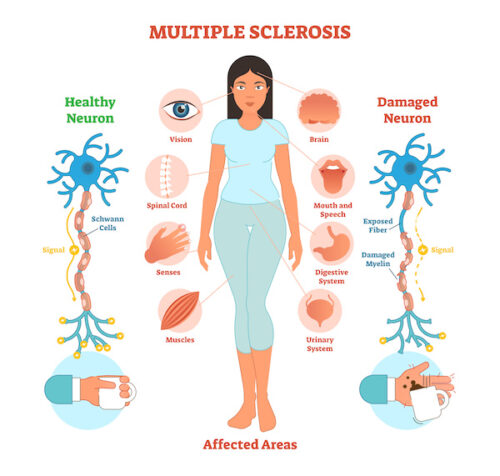Can Diabetes Cause Hair Loss and 11 Other Common Conditions?

Absolutely, diabetes can cause hair loss and does so by interrupting the natural hair growth cycle. Elevated blood sugar levels damage blood vessels and restrict blood flow. This causes hair follicles to get less oxygen, stunting hair growth. If blood sugar levels are consistently high, hair follicles are damaged, leading to hair loss.
Diabetes can affect the body in various ways that you may not realize. To maintain optimal health, it’s essential to know how diabetes can potentially harm the body. We’ll discuss these conditions and how they’re connected.
What Other Conditions Can Diabetes Cause?
Blood sugar levels can affect various body functions. We’ll answer questions regarding other conditions that can occur when struggling with blood sugar level management.
Can Diabetes Cause a Stroke?
Yes, diabetes can cause a stroke. In fact, people with diabetes are two times more likely to have a stroke than those without diabetes. Diabetes causes strokes through blood vessel damage, which causes blood vessel narrowing, stiff arteries, blocked arteries, and overall cardiovascular system inflammation.
Cardiovascular damage restricts the blood flow that the brain needs to function. Strokes occur when the brain doesn’t get enough blood.
Can Diabetes Cause High Blood Pressure?
Diabetes does cause high blood pressure for similar reasons as strokes. Blood pressure is the force by which blood flows through the arteries. Diabetes damages the arteries and can cause them to narrow. When the arteries are narrower, the heart must pump harder to push the blood through.
Can Diabetes Cause Seizures?
Diabetes doesn’t cause epileptic seizures, but a diabetic seizure happens when blood sugar levels are extremely low—below 30 mg/dL. The brain needs glucose to work, and when there’s not enough, the neurons in the brain stop working, and a seizure occurs.
Can Diabetes Cause Erectile Dysfunction?
Yes, diabetes can cause erectile dysfunction. Diabetes can cause this condition due to restricted blood flow and nerve damage. Without proper blood flow, an erection is difficult to maintain. Additionally, nerve damage can cause limited sensations in the penis, also making it difficult to maintain an erection.
Can Diabetes Cause Itching in Private Parts?
Diabetes can cause itching in private parts—especially in women. Women with diabetes are at higher risk of developing yeast infections, and its main symptom—itching. This problem happens with consistently high blood sugar levels as yeast feeds off sugar. With yeast feeding off blood sugar, it disturbs the yeast-bacteria balance in the vagina, causing a yeast infection. Some diabetic medications can also cause vaginal itch.
Can Diabetes Cause Dizziness?
Diabetes can cause dizziness with extreme blood sugar levels—both high and low. High blood sugar levels can also lead to dehydration, which will cause dizziness. With high blood sugar levels, urination is more frequent as the body tries to rid itself of excess sugar through the urine. Excessive urination also eliminates water within the body, leading to dehydration and dizziness.
Can Diabetes Cause Weight Loss?
Yes, diabetes can cause weight loss. When the body doesn’t use glucose properly due to diabetes, it uses fat and muscle as an energy source. This will eat away at fat and muscle, causing weight loss.
Can Diabetes Cause Diarrhea?
Yes, nerve damage from diabetes can cause diarrhea. Consistent diabetic nerve damage will affect the autonomic nervous system, which controls digestion and bowel movements. Some diabetes medications can also cause diarrhea.
Can Diabetes Cause Headaches?
Technically, diabetes can cause headaches, though it’s not a common. But diabetes can cause a headache when blood sugar levels are too low or high.
Can Diabetes Cause Weight Gain?
Diabetes can cause weight gain due to insulin therapy. While insulin helps manage blood sugar levels, it can cause weight gain as a side effect. Someone with diabetes could also gain weight due to the diabetic symptom of increased hunger.
Can Diabetes Cause Vision Loss?
Absolutely. Diabetes can cause vision loss—even blindness. The various eye conditions caused by diabetes include:
- Diabetic Retinopathy: This condition occurs when high blood sugar levels damage blood vessels in the retina.
- Macular Edema: This problem usually happens along with retinopathy but is a separate condition because a particular area within the retina can swell. This swelling can lead to the macula getting damaged.
- Cataracts: Cataracts cause the eye’s lens to become cloudy, creating distorted vision and light sensitivity. Diabetes can make people more vulnerable to developing this condition.
- Glaucoma: Fluid buildup in the eye causes pressure and can damage the optic nerve. Recent studies suggest that people with diabetes are at a higher risk of developing glaucoma.
Can Diabetes Cause Hallucinations?
Yes, diabetes can cause hallucinations, though it’s rare. Those with diabetes can experience hallucinations when their blood sugar is dangerously high (600 mg/dL). This condition is called diabetic hyperosmolar hyperglycemic syndrome. The syndrome makes the body unintentionally dehydrated by ridding itself of the excess sugar through increased urination.
Without treatment and hydration, this condition can be deadly. Hallucinations associated with this condition include seeing things that aren’t there and hearing music or voices.
Learn How to Manage Your Diabetes Better
If you’ve struggled with diabetes management, you aren’t alone. It can be challenging to manage blood sugar levels in our busy lives.
If you want to learn more about diabetes at your own pace, Dr. McDougall offers various relevant resources.
Further Reading:
- Is falling asleep after eating are signs of diabetes?
- Can People with Diabetes Eat Popcorn [and 12 Other Common Foods]?
- The Ultimate Diabetic Diet Plan
Recommended Articles

Common Health Problems: Multiple Sclerosis (MS) & Diet

Is Falling Asleep After Eating a Sign of Diabetes?






